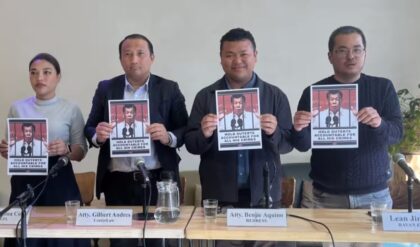Pro-Duterte blogger Krizette Laureta Chu went viral on social media after she posted a public apology for her remarks about the government, which she called “s*x” in one of her posts.
During a Congressional hearing conducted by Tri-Comm on the spread of disinformation, Manila 6th District Rep. Benny Abante questioned Chu about the statements she posted online. Abante criticized some of Chu’s posts, asking if they were not causing confusion among the public.
Chu defended herself, saying that her statements were part of her right to freedom of expression on social media. “Respectfully, Mr. Chair, those are my feelings,” Chu said, emphasizing that the statements only expressed her feelings.
However, Abante was not satisfied and insisted that Chu’s statements could be considered fake news, and could misinform the public. Because of this, Abante asked Chu to apologize for his posts.
Chu did not hesitate and accepted Abante’s apology request. “I apologize for saying the word ‘t*nga’ on my post,” was Chu’s response, showing that he complied with the requested action from the lawmaker.
Aside from Chu, another blogger, MJ Reyes Quiambao, also received a warning from Abante. Quiambao was told to join forces to correct his statement that the Extrajudicial Killings (EJK) cases were a “hoax.” According to Abante, if Quiambao did not apologize, he would file a motion to charge him with contempt.
“If you don’t apologize right now, or I am going to make a motion to cite you in contempt,” Abante warned, giving Quiambao an ultimatum to apologize or face legal action.
Despite the tensions at the hearing, Abante was not immune to controversy. While questioning the bloggers, he joked and called them “t*nga” which caused confusion. However, this statement by Abante was removed from the hearing record after it was deemed unparliamentary, which gave rise to further discussion in the session.
This incident highlighted the ongoing issue of disinformation and the responsibility of social media influencers and bloggers in spreading messages online. The hearing showed that there are instances where statements by individuals can have a complex impact on the public, hence the need for proper use of the platform to prevent incorrect information.
The statements of Chu and Quiambao, as well as the actions of the legislators, provided a profound reflection on the importance of expressing opinions and their limits, especially on statements that may cause incorrect views or spread misinformation.






